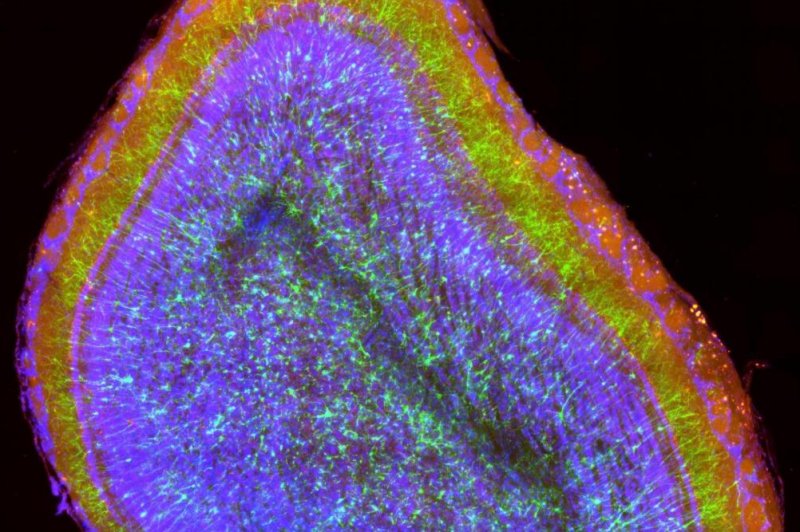A brain scan shows the production of new neurons in an adult brain. Photo by Mariana Alonso and Pierre-Marie Lledo/Institut Pasteur
Feb. 22 (UPI) -- In a new study, French researchers have shown adult-born neurons are involved in sensory learning, helping the brain strengthen the association between sensory stimuli and rewards.
Though most neurons are formed during embryogenesis, some brain regions continue to generate new neurons throughout adulthood. However, scientists have struggled to determine what purpose adult-born neurons play in brain function and how they integrate into existing neural networks.
In a quest for some clarity, neuroscientists at the Pasteur Institute and the French National Center for Scientific Research tagged and observed adult-born neuron activity in mice. Scientists focused specifically on new neurons formed in the olfactory bulb, the portion of the mice brain that processes smells.
Researchers found the adult-born neurons react most intensely to odors associated with a reward. In tests that required mice to learn the connection between a smell and positive reinforcement, mice were more likely to excel after the adult-born neurons were activated.
"We demonstrate that adult-born neurons, but not preexisting ones, contain information about learned positive value," scientists wrote of their efforts. "Moreover, specific heightening of this signal improves associative learning and odor value update and is enough in some cases to trigger behavior even without odor stimulus."
The findings, published this week in the journal PNAS, suggest adult-born neurons play a significant role in the strengthening of reward-motivated learning processes.
"Transferred to humans, these findings could improve our understanding of the role played by new neurons in the adult hippocampus in associative learning processes," researchers wrote in a news release.















